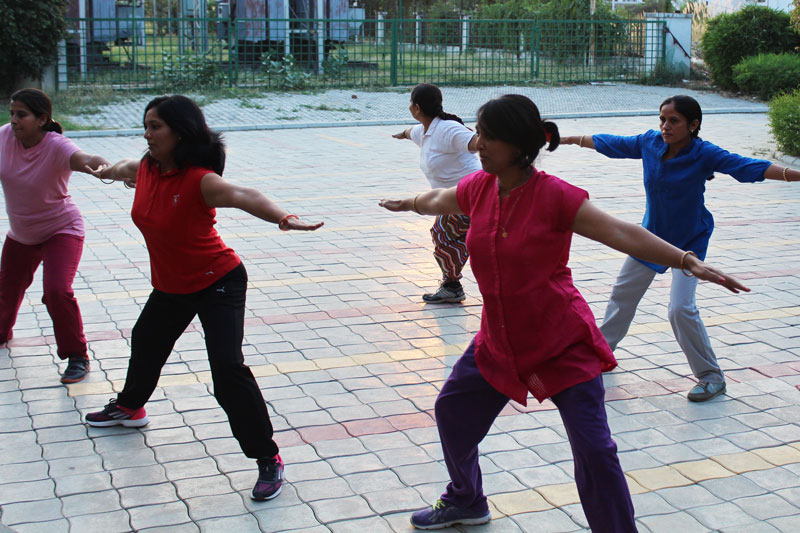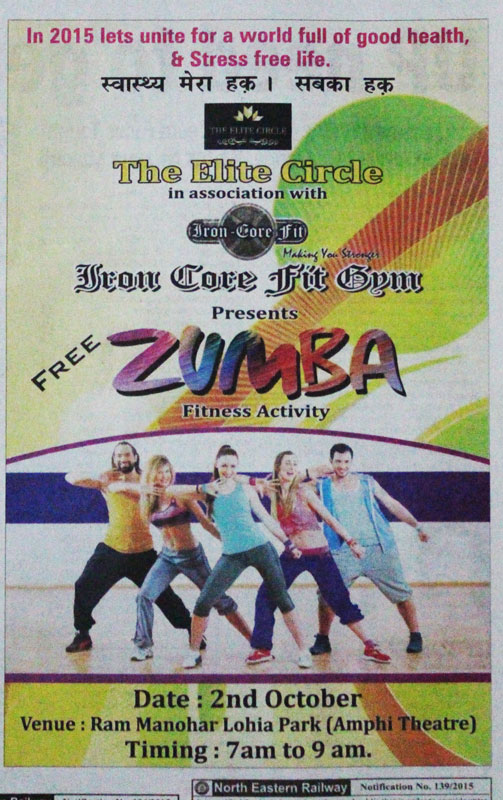The land for development in India is limited, the population is over a billion, the money made through legal and illegal means is plenty, and the aspirations for western style lifestyle and comfort is on a rise. All these have fueled an unprecedented growth in the real estate market. Real estate ads promise luxury homes but rarely do they deliver one. Shoddy construction, incomplete work, land and other forms of disputes, unprofessional and untrained labor, often affect what is delivered. In spite of all this the builders are making a huge amount of money and so are the property owners who have seen their property price rise 4-5 times in a matter of few years.
The Fitness Boom in India
Health consciousness and the need to be fit is on a rise in India. Fitness centers and gyms have mushroomed all over India, in small towns and big cities. Yoga, Aerobics, and Zumba are becoming popular among the middle and upper class public. Advertising for diet pills, supplements for building muscles, and other similar products have also increased. On Indian television, infomercials for weight-loss and weight-gain supplements have particularly increased. The weight-gain supplement advertisements exploit the insecurities of Indian men who are not tall and big and promise them increase in height and weight, which is then linked to their success in life, particularly with women. Weight-loss ads on the other hand exploit the insecurities of women, particularly housewives.



The “Unisex” Washing Machine: Easing Indian Men into Doing Domestic Chores
Cooking, cleaning, laundry and other household chores are mostly done my women in India. Traditionally Indian men have not engaged in these “feminine chores”. In patriarchal society like India, masculinity is linked to work outside the home and femininity to domestic work. Advertisers are helping men feel comfortable doing domestic chores through positioning of products such as washing machines as “unisex.” Several washing machine and washing detergent ads in India now show men doing the laundry with a message that it is easy to do. Women are often shown helping and instructing men how to operate the washing machine to resolve a stain crisis.
Religion and Brands
Religion is powerful. Brands are powerful. They both rely on strong believers and followers. In India, a deeply religious country, it is not uncommon to see the two coming together resulting in successful business ventures. T-Series made a fortune at one time selling music cassette tapes and CDs with religious songs. It then branched into number of other products including bottling Ganga jal. The Ganges water is considered holy by the Hindus and is used in various religious ceremonies. The Ganges is extremely polluted now but nevertheless this does not stop the believers from bathing and buying Ganges water for religious purposes.
Recently, I was introduced to the Patanjali brand, which makes a range of Ayurvedic and organic products. Yoga Swami Ramdev who has a big following in India and abroad is now marketing this brand of products. If managed well, with consistency of message and quality of products, it has the potential to be very popular among Indians who strongly believe in natural remedies and organic products. It was fascinating to hear people talk about the Patanjali products and the deep belief they have in Swami Ramdev. The company aims to do more than sell products, which it notes in its mission statement:
“We are confident that the campaign for upliftment of the nation and the conservation and protection of the ageless science ayurveda, been launched with the support of the common man would ultimately reach its goal. The campaign is not commercial but all in the public interest. Scores of the volunteers are giving relentless service free of cost for the success of the massive ‘yagna’.”

